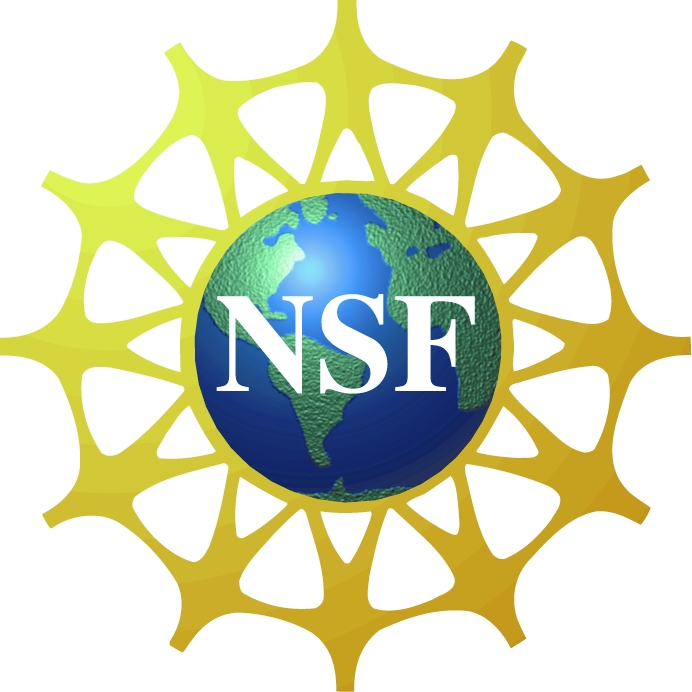Difference between revisions of "Main Page"
| Line 11: | Line 11: | ||
== What's New == | == What's New == | ||
| − | * This year, GEM | + | * This year, GEM held a virtual Mini-GEM workshop during January 19 - 22, 2021, from 10am - 2pm EST via Zoom. No registration fee was required. Here is a link to the [https://drive.google.com/file/d/1VVVF7x3H75d4QWmVDKYYkw2JP47BsKLR/view?usp=sharing agenda]. More information about the workshop may be found at the [https://gemworkshop.org/ GEM Workshop Website] and on [https://gemworkshop.slack.com/ Slack]. |
| − | * | + | * Due to continuing uncertainties with the COVID-19 pandemic, the GEM Steering Committee decided to hold a fully virtual GEM Summer 2021 workshop from Jul 25 to Jul 30, 2021. Information will be available at the GEM workshop website as time approaches. |
== GEM Community Knowledge Base == | == GEM Community Knowledge Base == | ||
Revision as of 16:59, 14 March 2021
Geospace Environment Modeling (GEM) 
Geospace Environment Modeling (GEM) is a broad-based, community-initiated research program on the physics of the Earth's magnetosphere and the coupling of the magnetosphere to the atmosphere and to the solar wind. The purpose of the GEM program is to support basic research into the dynamical and structural properties of geospace, leading to the construction of a global Geospace General Circulation Model (GGCM) with predictive capability. This GGCM model will be modularized and will complement parallel developments of magnetohydrodynamic models. The strategy for achieving GEM goals is to undertake a series of campaigns and focus groups, in both theory and observational modes, each focusing on particular aspects of the geospace environment.
The Geospace Environment Modeling (GEM) program is sponsored by National Science Foundation (NSF) Division of Atmospheric and Geospace Sciences.
Contents
New to GEM? Get the Newsletter and Follow the Chair’s Chat Blog!
Want to stay informed about GEM activities? Sign up for announcements through the GEM Messenger - more information here and follow the GEM Chair Blog.
What's New
- This year, GEM held a virtual Mini-GEM workshop during January 19 - 22, 2021, from 10am - 2pm EST via Zoom. No registration fee was required. Here is a link to the agenda. More information about the workshop may be found at the GEM Workshop Website and on Slack.
- Due to continuing uncertainties with the COVID-19 pandemic, the GEM Steering Committee decided to hold a fully virtual GEM Summer 2021 workshop from Jul 25 to Jul 30, 2021. Information will be available at the GEM workshop website as time approaches.
GEM Community Knowledge Base
The science component of the GEM Workshops are led by a volunteer Steering Committee. To promote transparency and provide an informal guide to existing, new, and future members of the Steering Committee, a document of GEM Steering Committee Best Practices was developed. This document, updated in October 2019, is available here.
The hallmark of GEM workshops is its community-led workshop-style sessions, carried out through focus groups. Interested in applying to run a focus group and are not sure how to do it? Are you currently running a focus group and need ideas for how to achieve the workshop-style in your focus groups? Advice from previous focus group leaders on proposing and running a focus group, updated in October 2019, is available here.
Anti-Harassment Policy for GEM Meetings and Activities
GEM is committed to ensuring that all participants in all GEM activities have an environment that is free from harassment. This policy applies to all attendees at GEM activities including scientists, students, guests, staff, and contractors participating in scientific sessions, auxiliary meetings, and social events associated with any GEM gathering or other activity. See the GEM Anti-Harassment Policy, NSF Sexual Harassment for Conferences, and NSF Conference Workshop Symposium Participant Notice for details.
Commitment to Anti-Racism and Inclusion in the GEM Community
GEM stands with the numerous professional and academic societies around the world that have pledged to support diversity, equity and inclusion, and commits to listen, advocate, and break down barriers for persons of color. We acknowledge that deep biases and inequities exist that prevent the full participation of people of color in our own scientific community. The GEM Steering Committee and leadership commit to being intentionally and actively anti-racist through education and best practices. Please see the GEM Inclusion Statement for further details.
Acknowledgment and Disclaimer
Any opinions, findings and conclusions or recommendations expressed at this website are those of the authors and do not necessarily reflect the views of the National Science Foundation (NSF). Comments about this website can be e-mailed to geospace.environment.modeling [at] gmail.com.